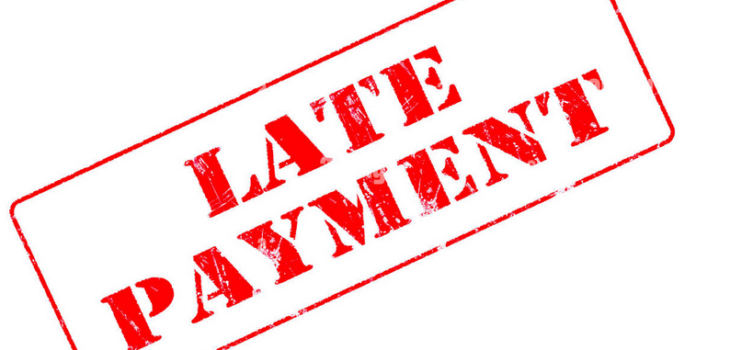 Credit
Credit
The Consequences of Late Payments and How to Prevent…
|
Getting your Trinity Audio player ready...
|
Late payments can have a significant impact on your financial health and credit score. In this article, we’ll delve into the repercussions of missing payment due dates, whether they’re for credit cards, loans, or other bills. We’ll also provide actionable tips to help you avoid the pitfalls of late payments and maintain a strong financial footing.

Understanding Late Payments
Late payments occur when you fail to pay a bill or loan installment by the specified due date. Whether it’s a credit card minimum, mortgage payment, or utility bill, missing the due date can result in penalties, higher interest rates, and potential damage to your credit history.
The Consequences for Your Credit Score
Late payments have a direct impact on your credit score. Payment history accounts for a significant portion of your credit score, and even one late payment can lower your score. A lower credit score can lead to difficulties in obtaining credit, higher interest rates on loans, and even impact your ability to rent a home or secure a job.
Financial Consequences
Late payments often come with financial penalties, including late fees and increased interest rates. These additional charges can accumulate over time, leading to increased debt and potential financial strain. In some cases, repeated late payments could even trigger default on loans or credit accounts.
Tips to Avoid Late Payments
Set Up Reminders
Use calendar reminders, apps, or alerts to remind you of upcoming payment due dates.
Create a Payment Schedule
Organize your bills by due date and create a payment schedule to ensure you never miss a payment.
Automatic Payments
Set up automatic payments for fixed bills, like mortgages and utilities, to ensure they’re paid on time.
Emergency Fund
Maintain an emergency fund to cover unexpected expenses and prevent diverting funds from your bill payments.
Adjust Due Dates
Contact creditors to request due date adjustments if your current due dates clash with your pay schedule.
The Grace Period
Many creditors offer a grace period after the official due date before considering a payment late. This period, usually a few days, provides some flexibility for making payments without penalty. However, it’s crucial to understand the specifics of each creditor’s grace period. Some creditors may have stricter grace periods, while others may be more lenient. Always check the terms and conditions of your agreements to make the most of this buffer time.
Communication is Key
If you foresee a challenge in making a payment, don’t hesitate to contact your creditors. Many lenders are open to negotiating alternative payment arrangements or providing temporary relief, such as forbearance or deferment.
Repairing the Damage
If you’ve already missed payments, don’t despair. Consistently making on-time payments moving forward will gradually improve your credit score. Over time, the impact of late payments will lessen, and lenders will view your recent responsible behavior more favorably.
Seeking Professional Help
If you find yourself struggling to manage your debts and payments, consider seeking help from a financial advisor or credit counseling agency. These professionals can offer personalized guidance, debt management plans, and strategies to help you regain control of your finances. Don’t hesitate to reach out for assistance if you need it.
Real-Life Examples
To further illustrate the impact of late payments, let’s consider a few real-life scenarios:
Credit Card Debt
Missing credit card payments can lead to higher interest rates, increased minimum payments, and a growing balance that becomes harder to manage.
Mortgage Late Payments
Late mortgage payments can result in penalties, late fees, and even foreclosure proceedings in extreme cases.
Student Loan Consequences
Late student loan payments may lead to default, making you ineligible for loan deferment, forbearance, or forgiveness programs.
Utility Services
Falling behind on utility bill payments can result in service disconnection, leaving you without essential services like electricity, water, and gas.
Teach Kids about Financial Responsibility
Teaching your children about the importance of responsible financial habits can start early. Discuss the concept of bills, due dates, and the significance of making payments on time. Introducing these concepts in a simplified manner can help them develop healthy money management skills as they grow.
Regular Financial Check-ins
To ensure you’re staying on top of your payments, set aside time for regular financial check-ins. Review your bills, upcoming due dates, and account balances. This practice can help you identify any potential issues in advance and take corrective actions if needed.
Conclusion
Late payments can have far-reaching consequences, affecting both your credit score and financial well-being. By understanding the risks and implementing proactive strategies to avoid late payments, you can safeguard your financial future and maintain a positive credit history.









